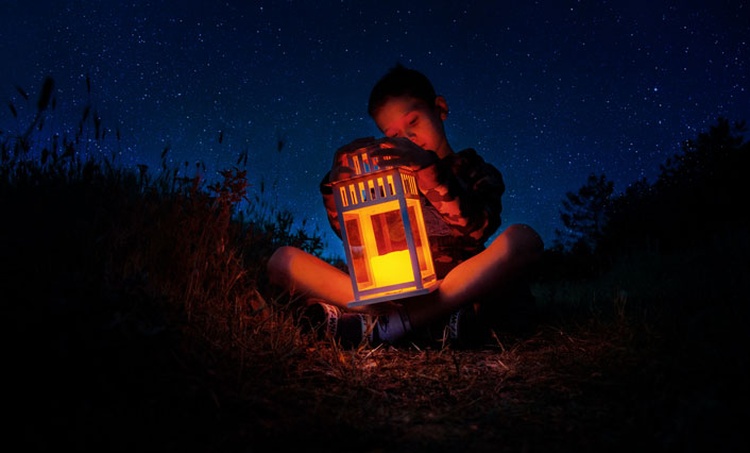Jesus…said, “I am the light of the world. Whoever follows me will never walk in darkness, but will have the light of life.” John 8:12
The people Jesus spoke to lived without streetlights. If they didn’t have a lamp, they groped in darkness, vulnerable to assailants. They understood what it meant to walk in darkness, desperately needing a light.
Jesus’ claim to be the light would have been startling, especially since it was one of His “I AM” statements asserting His divinity. Notice Jesus didn’t say, “I’ll point you to the light” or “I’ll give you the light.” He said, “I am the light.” The only Light.
John’s Gospel tells us Jesus is the light that “shines in the darkness, and the darkness has not overcome it” (John 1:5). And Jesus fulfilled Isaiah’s prophecy: “The people living in darkness have seen a great light; on those living in the land of the shadow of death a light has dawned” (Matthew 4:16).
Yet Jesus also told His followers, “You are the light of the world” (Matthew 5:14). If we’re lights, what’s our power source? “The Lord is my light” (Psalm 27:1). “Whoever follows me will not walk in darkness, but will have the light of life” (John 8:12). “The LORD will be your everlasting light” (Isaiah 60:20).
Consider the brightest “stars” in the sky—four of which are actually the planets Venus, Jupiter Mars, and Saturn. Unlike the true stars we see, which are far away and therefore dimmer, these planets don’t shine with their own light; they are bright only because they reflect the sun. Likewise, the moon is a beautiful sight, but it doesn’t generate light on its own. It merely reflects it. Merely makes the reflection sound trivial, but this is actually a magnificent phenomenon. The moon was made to glorify the sun, and when it does, it shares in the sun’s glory. (If the moon were able to talk, wouldn’t we think it foolish if we heard it congratulate itself for how brightly it shines?)
As Christ’s followers, we’re not suns; we’re moons. We shine with a reflected light. Christ’s light is the original; ours is derivative. His light is the primary; ours is the secondary. For the moon to reflect the sun, it needs for nothing to come between it and the sun. Our calling is to stay in the light of Jesus, and not let Him be eclipsed in our lives.
In a dark world, our hearts cheer when we see light. Often light is embodied in a Jesus-follower, in whom we see a secondary reflection of Jesus, the Primary Light of the world. The light of Christ, shining through others, can bring us great joy. I once heard Christian counselor David Powlison say that although God alone is the blazing sun, we can be 3-watt night-lights. In darkness even a tiny light can bring hope.
What does it mean to be a light for Jesus in this world of darkness? I share some thoughts in a message I gave early this year to the staff of Joni and Friends, the ministry founded by Joni Eareckson Tada:
“Don't shine so others can see you. Shine so that through you, others can see Him.” —C.S. Lewis
For more on finding joy in Jesus, see Randy’s devotional 60 Days of Happiness, as well as his books Happiness and Does God Want Us to Be Happy?




